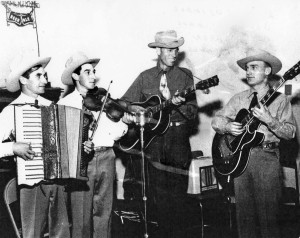By John Mattingly
Back in December 1975, an earnest fellow named Birch – a member of the Jehovah’s Witnesses – was kind enough to come to my farm to warn me of impending doom. He urged me to repent and prepare for the end of the world – The Rapture, on January 17, 1976.
I offered to bet Birch ten thousand dollars that The Rapture would not come on January 17, 1976. Birch was tempted but admitted he didn’t have that much money in the bank, nor was he sure if he could spend the money in a post-rapture world. In the end, he bet a hundred. We shook on it, and I became a little richer the following month.
After that, the Witnesses didn’t come around my farm for a while, but some years later, Birch returned and came to work for me, joining the crew as a pronounced atheist. He proved a good worker, and deserves credit for applying the principal of, “Fooled once, shame on you; fooled twice, shame on me.”
We atheists had a private joke around the farm. When asked, “Does God exist?” we replied, “We’re workin’ on it.”
More recently, I offered a bet of a hundred thousand to Josh, a follower of the Southern preacher Harold Camping, that Judgment Day would not come on May 27, 2011. Josh settled on a bet of a hundred bucks, but didn’t pay up. (For those of you who missed it, THE END actually did come, though only to those who were prepared to see it). Betting with true believers is like playing chess with someone who doesn’t know the moves.
My inclination to bet against The End of The World was stimulated by exposure to Pascal’s Wager when I was about ten years old. Crazy Uncle Bob explained to me one Christmas that Pascal was a notorious skeptic, a mathematician, inventor and Catholic scholar who lived in the 17th Century, a period generally described in the history of philosophy as the Age of Reason. In his final work, Pensees, Pascal offered that his Wager was the most rational way to approach the question of God’s existence.
Pascal argued it was rational to wager that God exists because it’s a wager from which you have everything to gain and nothing to lose. If God does exist, you increase your chances of life after death and favorable Judgment from God, who, according to the Wager, would favor those who believed in him/her and possibly scorn those who didn’t. But if God doesn’t exist, you’ve lost nothing, and better yet: in the meantime, your belief in God has given you peace and comfort in an otherwise absurd and alien world, a world which many have predicted will soon come to an end.
One of the more famous and well calculated bets in favor of planetary doom came from Thomas Malthus in the early 1800s: f(t) = a (1.01)t + b(1.02)t
aka: “The power of population is so superior to the power of the earth to produce subsistence for man that premature death must in some form visit the human race. The different modes which nature takes to prevent or repress redundant population do not appear, indeed, to us so certain and regular, but though we cannot always predict the mode we may with certainty predict the fact (of the able ministers of depopulation).”
All the major players in the Industrial Revolution took the other side of the Malthusian bet, which took the stage in more recent times with the famous Simon-Ehrlich bet of 1980. As proxies for a bet regarding resource scarcity, they selected the price of copper, chromium, nickel, tin, and tungsten between 1980 and 1990, Ehrlich betting the prices of these base commodities would be higher. Instead, they were significantly lower, and as I understand the structure of the bet, the loser was to pay the winner the difference in the aggregate prices of the commodities. Ehrlich was forced to pay Simon some $576, though it isn’t clear that he actually wrote a check.
In the last ten years there have been many bets regarding global warming, with Al Gore taking all comers, but, of course, when dealing with the impatient timeframes of bets, it’s almost as difficult to prove a position regarding global warming as it is to prove a position regarding the existence of God.
Betting against doomsdays, raptures, and, in general, the End of The World, is usually safe and rational, in that you collect on the bet if the world doesn’t end, but can’t be expected to pay off it does. However, as my prior betting experience shows, doomsdayers have much bigger mouths than pockets. So I became curious as to whether there was a larger, more liquid market for shorting The End of The World, a market backed by the full faith and credit of the U.S. taxpayer, such as, well, Wall Street.
A friend in New York told me about Nassim Taleb, who trades a substantial fund of some two billion dollars comprised of various put and call options on the S&P, VIX, and other investment instruments that benefit from excessive market volatility, and do really well during a financial catastrophe. Based on “the impact of highly improbable events” (such as black swans), Taleb’s fund has done well in recent months as markets have behaved in highly improbable ways.
I asked my friend if there was a Wall Street fund that went “all in” on the End Of The World, a fund called something along the lines of, The Ultimate Short. He pointed out that Wall Street is under a lot of pressure these days, with taxpayers taking to the streets to protest the preferential bailouts that the fat cats received from TARP. Consequently, this is a bad time to raise money for a fund with such a negative investment objective.
Then my friend laughed. “So … you’re suggesting a fund that pays when the world ends? There’s nothing but upside on that one.”
“Exactly,” I said. “It’s the Religious Trade.”
Our fascination with apocalypse is part of our evolutionary history. Humans have faced planetary catastrophes in the past, and we are the descendants of those hardy, vigorous, and in some cases, lucky, individuals who survived all of these catastrophes down through the millennium. There have been ice ages, heat waves, giant floods, axis-shifts, asteroid and comet hits, and other events unfriendly to humans, but most of these occurred more than 5,000 years ago.
Bill Bryson, in his book, A Short History of Almost Everything, points out that Earth is actually a dangerous place for large mammals, if we consider time spans in the hundreds of thousands of years. Only in the last 5,000 years, or thereabouts, have conditions been nearly perfect for large mammals such as homo sapiens. The norm on Earth is very chaotic, with frequent climate shifts, violent vulcanism, mammoth earthquakes and tsunamis, bombardments by NEOs (Near Earth Objects such as large meteors and asteroids), and solar flares, just to mention a few. Should the norm return, there are now more homo sapiens in the way of the havoc, and dwindling resources to deal with the aftermath.
Because our ancestors have been through rough times that make the Black Death of the mid-1300s, the Little Ice Age of the 17th Century, the Spanish Flu Pandemic of 1918, and the Great Depression of the 1930s look like rides at Disneyland (and the Financial Crisis of 2008 seem like a hangnail) we are probably hard-wired as a species to expect (read: predict) apocalypse.
Then along comes our good buddy Science, to tell us that our planet, indeed our entire universe, will end some day. It’s supposed to be a long, long way off, but this piece of information has a way of infiltrating our outlook on day-to-day life. To quote the wonderful HBO series, Six Feet Under, “Everyone, everything, everywhere, ENDS.” Life is a curious irony in which we continue each day, knowing we will not persist, and spend a lifetime in the pursuit of knowledge, knowing we will die and forget everything.
At the risk of offending those who believe in heaven, reincarnation, and past-life therapy, I’m willing to bet against an afterlife. The way one places this bet is to act with the conviction that if you’re going to get it done, now is the time, while you’re here on one Earth. No second chances beyond.
Another way to think of this bet is if you really believe in heaven and some form of afterlife, why waste any more time getting to it? If heaven is such a great place, why hang around Earth getting old and decrepit, suffering the ravages of weather, the pathetic droning of politicians, the avarice of Wall Street’s New White Trash, and the terrible disease and suffering brought on by wars?
Or, if you’re going to “come back” in some superior life form, why not move to the front of the line when you have a decent bank of good deeds under your belt? Why take a chance that you could accidentally screw the pooch?
Answers to these questions, however circuitously phrased, always concede there’s enough uncertainty about how, exactly, one gets to heaven, or to another form of being, that it’s best to stay in line, here on Earth. The slippage between belief and certainty on this topic drives our brains into a corner where we do the Cosmic Mumble-Shuffle, asking questions we know have no answers, giving ourselves answers we know have no meaning. Even the great religions of the world concede that super-human forces, such as God, operate in ways humans cannot understand.
Bottom line: if someone tells you the end is near, bet them at least a hundred bucks that it is not. That said, there is no question that at some point in the future the human species will face a Malthusian depopulation event, rational preparations for which I will discuss in coming months.
John Mattingly cultivates prose, among other things, and was most recently seen near Creede.


